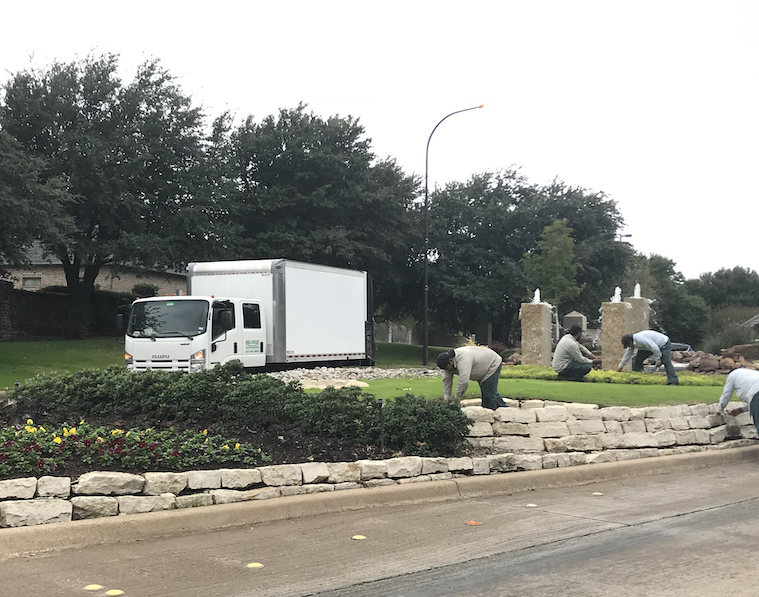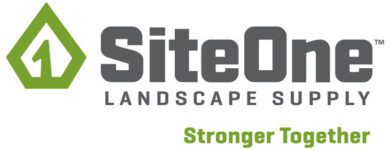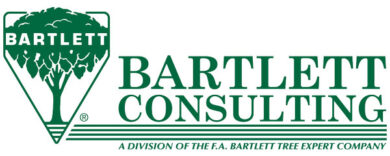GPS Tracking Enables Optimal Landscaper Fleet Productivity

In the midst of the COVID-19 crisis, landscape business owners and fleet managers still need to manage their fleets, but may not want to go to the office daily and risk possible exposure to themselves or others.
Fortunately, by using technology such as a real-time GPS vehicle tracking system via a smartphone, tablet or PC remotely, in addition to e-mail, Zoom meetings, etc., landscape business owners can socially distance, as well as dynamically manage their fleets and work crews throughout the day without missing a beat.
Compared to traditional techniques such as meeting face-to-face and shuffling paperwork, the advanced technology now available actually improves control and allows immediate response and adjustment to the inevitable emergencies and changing demands that occur throughout the day.
“With an advanced, real-time GPS vehicle tracking system, essentially all employees can socially distance,” said Ben VanAvery, director of sales and marketing at Advanced Tracking Technologies (ATTI), a Houston, Texas-based designer and manufacturer of GPS tracking products. “To avoid potential viral transmission from other employees and vehicles, they can leave from their homes in their typical company vehicle and go directly to the job site without returning to the office, except to retrieve any needed supplies,”
Such a GPS tracking system can facilitate social distancing and virtually eliminate the need for routine personal interaction, while ensuring that drivers and work crews stay on task.
When logistics during the pandemic require it, emergencies occur, or work must be handled by the nearest qualified, available technician, such a system can be very advantageous. With real-time GPS vehicle tracking, landscaper managers can see which technicians they have across the area, including who is nearest and who is experienced and properly qualified for the job. By accessing real-time traffic data in the software, they can identify who is easiest to send to that location as well.
For example, some real-time GPS vehicle tracking devices – such as the Vision from ATTI – can show where vehicles are when the fleet manager or dispatcher needs to know. Such systems provide real-time location updates, as well as speed and idle time alerts, with data transmitted via satellite and cellular networks to a smartphone or PC on a 24/7 basis.
With such a system, dispatches can be made throughout the day and sent to the driver’s phone with the next jobsite address. Completed jobs can be recorded in the system, so the dispatcher, owner or fleet manager can stay apprised.
Greg Hamman, owner of Prime Landscape Services, a Dallas-Fort Worth, Texas-based landscape contractor, has already put such a capability to good use. Currently, Prime Landscape Services has approximately 20 lawn maintenance crews serving north Texas, and a total of about 55 service vehicles companywide.
According to Hamman, via a smartphone app he can display the real-time location of his entire vehicle fleet on a map, and zoom in on any specific truck. All this helps with customer support, and with on-the-fly coordination.
“I can pull up my smartphone and see exactly where my trucks are in route, if they’re picking up material, or stuck in traffic,” said Hamman. “So, I can tell a customer almost to the minute how soon a truck will arrive. I can also sit in the office for an extra hour and do billing or call customers while my crew is out getting materials.”
To instill greater self monitoring and efficiency during the pandemic, landscaper managers can also configure such systems to automatically send real-time text or e-mail alerts to individual drivers, groups, or the entire fleet if factors such as traffic congestion, travel route, vehicle speed, starts, stops, or idling pose a concern or deviate from policy.
During the pandemic or any period when a quick response is required, advanced GPS tracking systems can also improve efficiencies on more established routes.
For example, because such GPS systems are automated, travel reports can be generated that analyze vital historical data, such as on-time pick-ups or drop-offs, and can also be e-mailed without anyone having to open software. The reports can be customized as needed to include as much detail as needed, such as how many stops, how long per location, top speed, mileage, idle times of the day, etc. Identifying and implementing more efficient routing and performance, in turn, enables individual drivers and the fleet as a whole to accomplish more in less time.
When landscaper owner and fleet managers are busy dealing with the logistical impacts of the COVID-19 crisis, such GPS systems can also help individual drivers to drive more safely and take greater responsibility for their own conduct without the need to micro manage. A maximum vehicle speed, of say no more than 8 mph over the posted limit can be set and drivers informed of this. Such systems will then track their vehicle speed and compare this with the speed limit in its national database, with exceptions automatically e-mailed to the driver and fleet manager in a report, if desired.
In addition, implementing real-time GPS tracking can increase driver accountability by making them less inclined to take unauthorized excursions, such as for personal errands, when not on a job. This can help to minimize unnecessary vehicle mileage, fuel use, and wear and tear. On the plus side, GPS tracking can also be used to recognize and reward consistently rapid employee response.
For landscapers, the bottom line, however, is that today’s advanced GPS tracking systems can help to keep everyone as socially distanced from each other as possible, while still enabling optimal vehicle and crew management for work productivity.
Article provided by Advanced Tracking Technologies. For a free demo, visit https://www.advantrack.com/free-demo/. For more information, visit www.advantrack.com, call 800-279-0035 or e-mail sales@advantrack.com.


